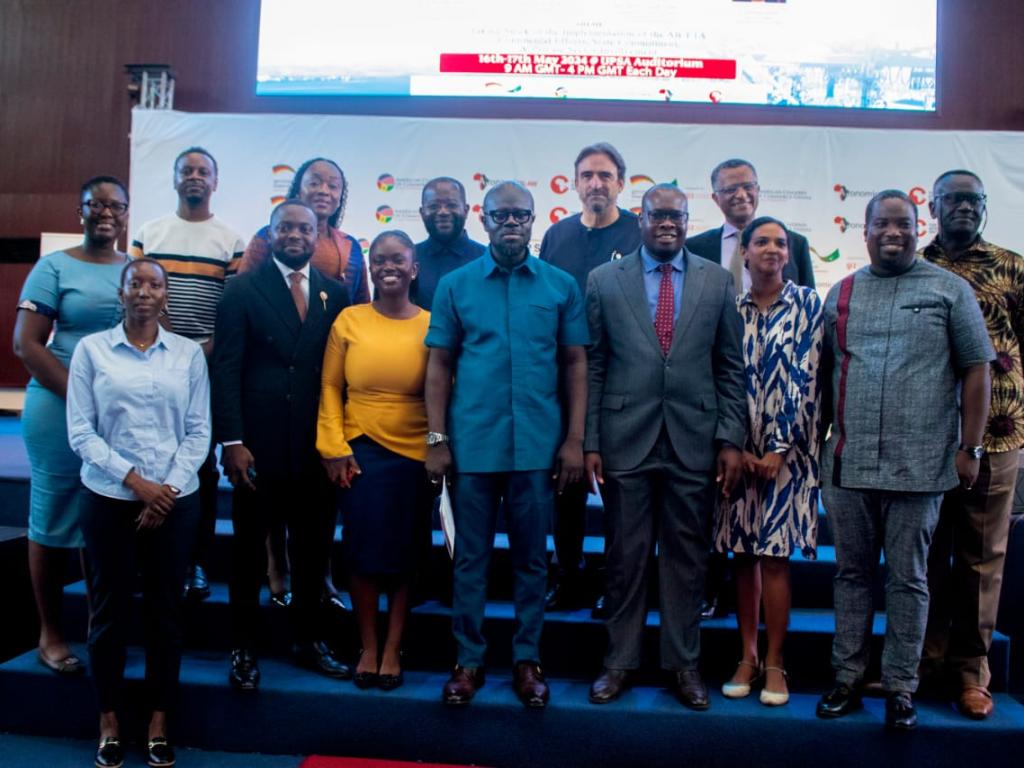Open for Business: The AfCFTA, Africa Trade, and Innovation Conference – A Recap

On May 16-17, 2024, the DST/NRF SARChI Research Chair of Intellectual Property, Innovation, and Development team attended the highly anticipated conference, "Open for Business: The AfCFTA, Africa Trade and Innovation Conference," held at UPSA Law School in Accra, Ghana. The theme, "Taking Stock of the Implementation of the AfCFTA: Continental Efforts, State Commitment, and Private Sector Involvement," drew experts and stakeholders from across the continent to discuss the progress and challenges of the AfCFTA.
Special Remarks: H.E. Wamkele Mene, Secretary General of AfCFTA Secretariat
Special Guest of Honour, H.E. Wamkele Mene, Secretary General of the AfCFTA Secretariat, underscored the importance of developing a robust legal and intellectual framework for the AfCFTA. He praised the agreement as one of the leading legal instruments on trade law globally, emphasizing that Africans have crafted a legal framework that is now sought after for advice on trade issues.
H.E. Wamkele Mene highlighted the significance of the ratification process—with 47 countries having ratified it. He also pointed out the critical role of the private sector in realizing the commercial value of the trade agreement.
Keynote Address: Economic and Political Dimensions
In the keynote address, Professor Melaku Desta, Coordinator of the African Trade Policy Centre at the United Nations Economic Commission for Africa, elaborated on the origins and objectives of the AfCFTA. He emphasized two main themes:
- Economic Prosperity: Driving growth and development across Africa.
- Political Stability: Promoting peace and stability through economic integration.
Insights from Professor Caroline Ncube
Professor Caroline Ncube was one of the distinguished guest speakers. She addressed the complex backdrop against which the AfCFTA is being implemented. She referred to this as a "polycrisis," highlighting the multitude of challenges such as wars, the COVID-19 pandemic, economic inequity, and climate change. Despite these hurdles, the AfCFTA is forging ahead, driven by the necessity to find solutions within the unique context of the African continent.
Professor Ncube emphasized the importance of crafting norms to complete the legal architecture of the agreement. With eight protocols already in place—including those on intellectual property, investments, competition, digital trade, and dispute resolution—she challenged participants to move beyond critique and actively seek solutions to improve these frameworks.
Protecting Traditional Knowledge: Nate Gotora's Analysis
Another significant contribution came from Nate Gotora, who presented a paper analyzing the structural and systemic barriers to the AfCFTA's implementation in protecting traditional knowledge and cultural heritage. His critical analysis within the context of African trade law shed light on the need for robust measures to safeguard these invaluable aspects of Africa's heritage in the face of increasing globalization.